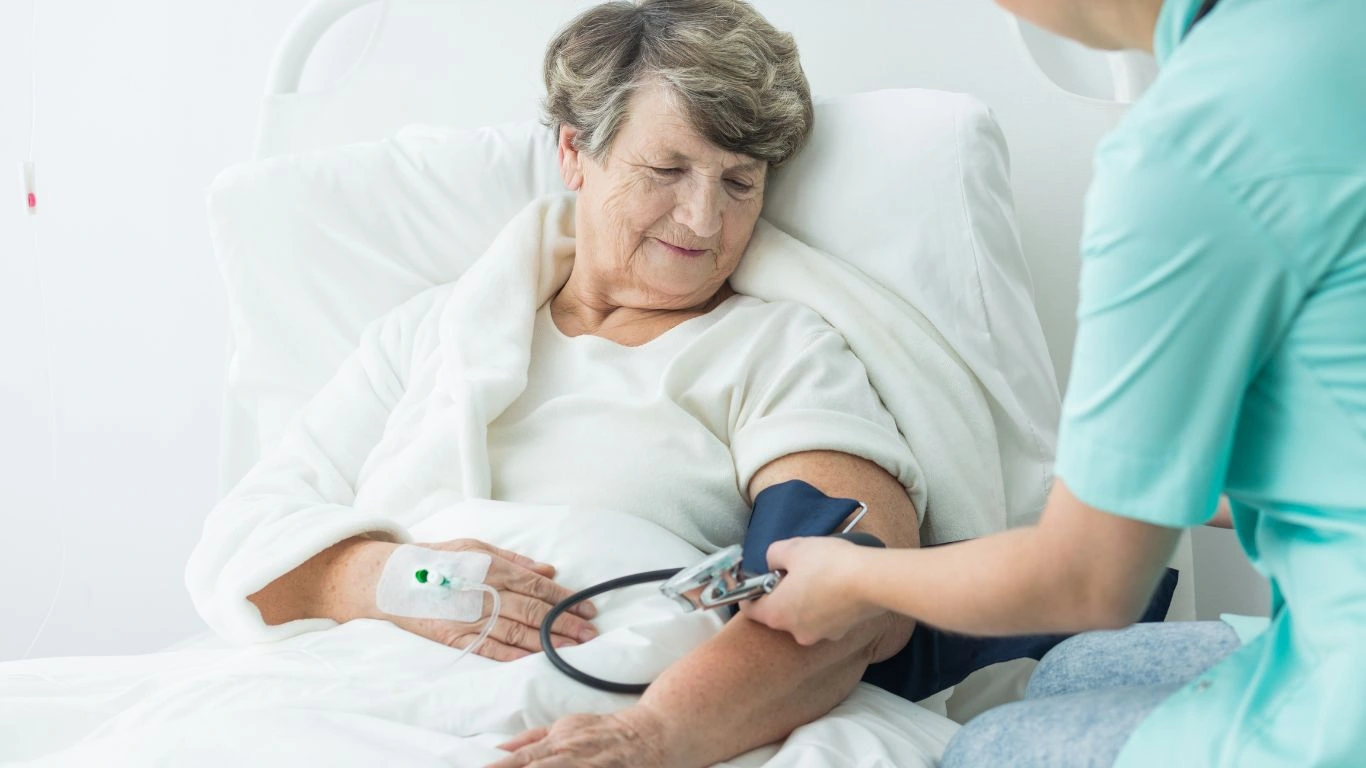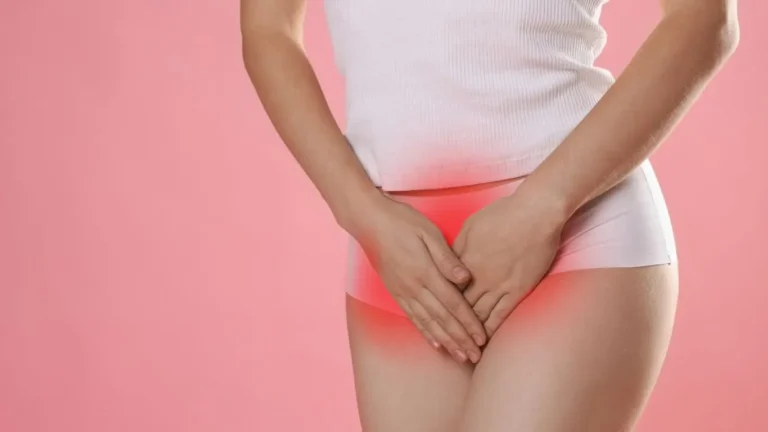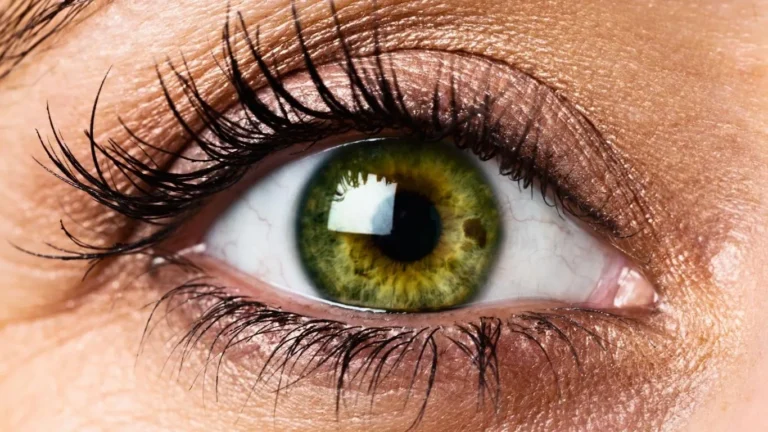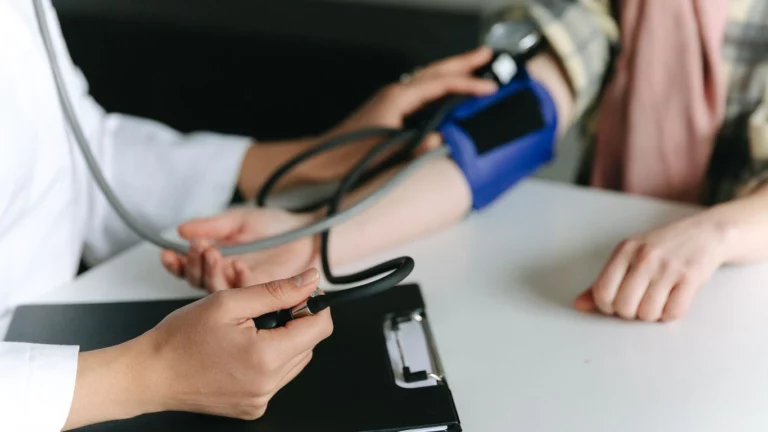Can Hot Weather Raise Blood Pressure? The Hidden Risk You Need to Know
As an Internal Medicine Physician specializing in hypertension management, I’ve seen a lot of curious cases in my day. One question that often comes up, especially when summer rolls around, is: “Can hot weather raise blood pressure?” It’s an interesting and important topic because, as we all know, heat and humidity can sometimes make us feel a bit off, but does it actually affect our cardiovascular health in a significant way? If you’re someone who already has high blood pressure or is at risk, this is a question worth considering. Let’s dive into it and explore how hot weather might influence your blood pressure, and what you can do about it.
The Relationship Between Temperature and Blood Pressure
When we think about high blood pressure, the first things that usually come to mind are things like diet, stress, lack of exercise, and sometimes even genetics. But one factor that often goes under the radar is the temperature around us. Hot weather, in particular, can have a surprising impact on your blood pressure, both directly and indirectly. So, can hot weather raise blood pressure? The short answer is yes, it can. But it’s not quite as simple as that, and there are a few things you should understand about how temperature affects your body and your cardiovascular system.
How Does Heat Affect Blood Vessels?
To understand how hot weather can influence blood pressure, let’s start with a quick overview of how temperature affects your blood vessels. When you’re exposed to heat, your body tries to cool itself down. One of the ways it does this is by dilating your blood vessels, which allows more blood to flow near the skin’s surface, releasing heat. This process is known as vasodilation.
At first glance, this seems like it should be good for your blood pressure, right? After all, if your blood vessels are wider, the heart won’t have to work as hard to pump blood through your system. But here’s the catch: While this vasodilation happens, it can also lead to a drop in blood pressure. In the short term, this drop isn’t usually problematic for most healthy individuals, but for those who are already on the edge with hypertension or have a weakened cardiovascular system, this shift in blood pressure can cause complications.
Dehydration: The Hidden Risk Factor
One of the most significant concerns during hot weather, especially in extreme heat, is dehydration. When we sweat more in the heat, we lose not just water, but also important electrolytes that help maintain fluid balance and healthy blood pressure. Without adequate hydration, the volume of blood in your system can decrease, which makes your heart pump harder to circulate the blood. This is known as hypovolemia and can lead to a rise in blood pressure. It’s a bit of a paradox: while heat can cause blood vessels to dilate, dehydration can cause your blood vessels to constrict, both of which can affect your blood pressure in unexpected ways.
In fact, dehydration is often overlooked as a factor that can raise blood pressure. People may not always feel thirsty, but when you’re not drinking enough water during hot weather, your blood vessels narrow to compensate for the lack of fluid. This narrowing can cause your heart to pump harder, which in turn can increase your blood pressure.
The Role of Humidity in Blood Pressure Fluctuations
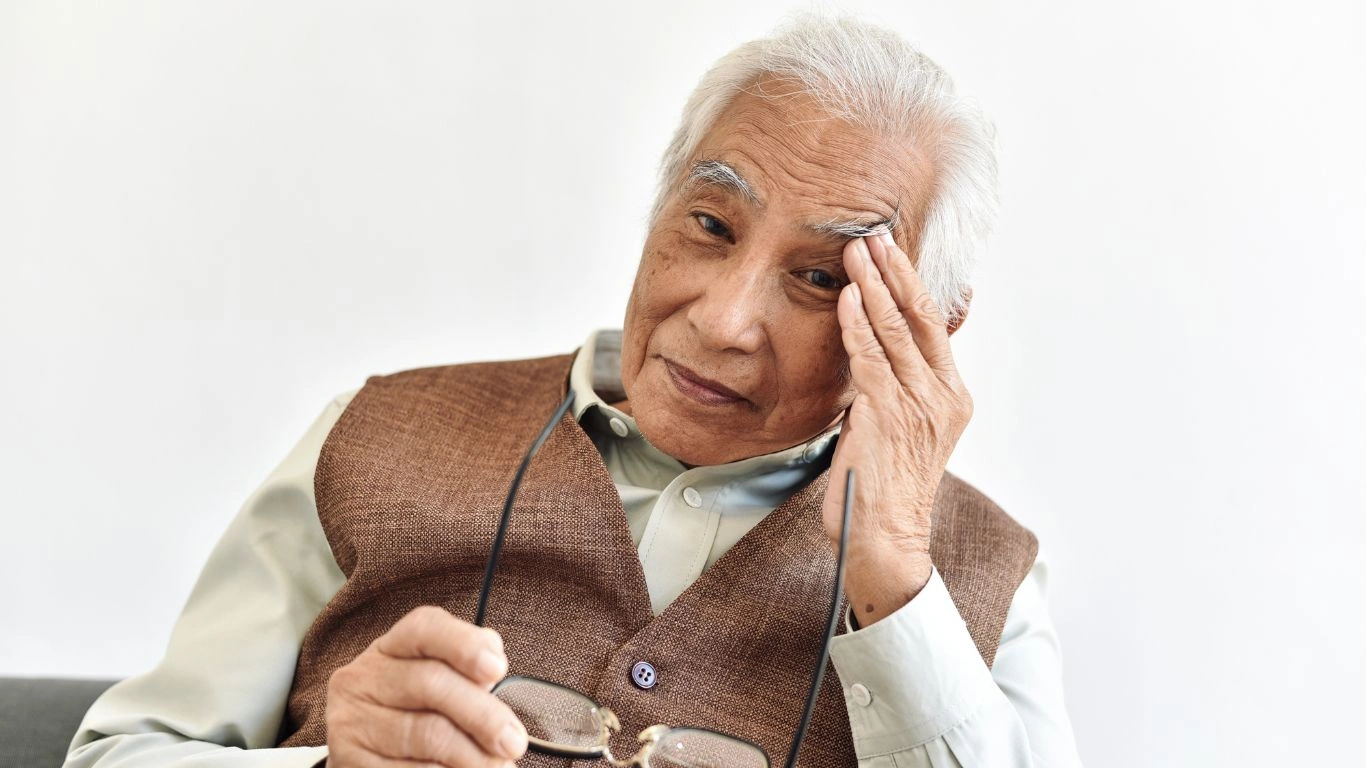
In addition to hot weather, humidity plays a crucial role in how your body responds to heat. Humidity refers to the amount of moisture in the air, and it can make hot temperatures feel even hotter. When the air is humid, your body’s ability to sweat effectively is compromised because the moisture in the air reduces the evaporation of sweat from your skin. This means your body has to work harder to cool itself down, and that can put additional stress on your heart and cardiovascular system.
When your body is under stress from the heat, it releases stress hormones like cortisol and adrenaline. These hormones can cause your blood vessels to constrict, which can lead to an increase in blood pressure. On top of that, the increased effort your heart has to make in hot and humid conditions can cause further strain on your cardiovascular system.
Why People With Hypertension Are More Vulnerable
If you already have high blood pressure, or hypertension, you might be particularly vulnerable to the effects of hot weather. As I’ve seen in my practice, individuals with hypertension often have a less flexible vascular system, meaning their blood vessels don’t dilate and constrict as effectively as those of people with normal blood pressure. This means that hot weather can have a more pronounced impact, and the body may not adjust as well to the heat.
Moreover, people with hypertension may already be on medications that affect their blood vessels, adding another layer of complexity to how their bodies react to heat. Certain blood pressure medications, like diuretics, can increase the risk of dehydration, making it even more important for individuals with hypertension to stay hydrated and monitor their blood pressure carefully during hot weather.
Protecting Your Blood Pressure During Hot Weather
So, what can you do to protect your blood pressure during those sweltering summer months? Here are a few tips that I always recommend to my patients:
- Stay Hydrated: Drinking plenty of water is essential for everyone, but especially for those with high blood pressure. Proper hydration helps maintain blood volume and supports healthy blood vessel function. It also helps prevent dehydration-induced spikes in blood pressure.
- Limit Salt Intake: Salt can contribute to fluid retention, which can affect your blood pressure. When you’re exposed to heat and sweat more, your body’s sodium levels can fluctuate, so be mindful of your salt consumption.
- Dress Appropriately: Wearing loose, lightweight clothing can help your body stay cool and reduce the strain on your cardiovascular system.
- Monitor Your Blood Pressure: It’s always a good idea to check your blood pressure more frequently during hot weather, especially if you have a history of hypertension.

Ultimately, while hot weather can raise blood pressure, understanding how heat and humidity affect your body is the first step in managing your health. As always, if you have any concerns about your blood pressure or how to stay safe during the hotter months, it’s important to reach out to your healthcare provider. The key is to stay informed and take proactive steps to keep your heart healthy and your blood pressure stable.
How to Manage High Blood Pressure During Extreme Heat
As we continue discussing the effects of hot weather on blood pressure, let’s focus on what you can do to manage hypertension when the temperature rises. It’s no secret that the summer months can present a real challenge for people who are already dealing with high blood pressure. But with the right approach, you can reduce the risk of any heat-induced spikes and keep your blood pressure in check. Let me walk you through some of the strategies that I recommend to my patients during the hottest months of the year.

Adjusting Your Exercise Routine
Exercise is one of the most effective ways to manage high blood pressure, but when it’s sweltering outside, you might have to adjust your routine. I’ve had many patients tell me that they enjoy their morning runs or outdoor workouts, but they notice their blood pressure creeping up on particularly hot days. Here’s the thing—your body already works harder in the heat to cool itself down, and if you’re exercising during the hottest parts of the day, that extra strain can have an effect on your blood pressure.
My advice? If you’re an avid exerciser and want to keep up your routine, try to schedule workouts in the early morning or late evening when the temperatures are cooler. Early morning is ideal because it’s not only cooler but also tends to be less humid, making it easier for your body to maintain its core temperature. And if you do exercise outside, remember to stay hydrated and wear light, breathable clothing to avoid additional stress on your cardiovascular system.
The Importance of Staying Hydrated
I can’t stress this enough: staying hydrated is key, especially when dealing with high blood pressure during hot weather. When you’re dehydrated, your body’s blood volume decreases, which can cause your heart to work harder. As I mentioned earlier, dehydration and vasoconstriction (the narrowing of blood vessels) can lead to a rise in blood pressure, which is something you definitely want to avoid.
In my practice, I often see patients who don’t realize how much heat can affect their fluid levels. It’s not just about drinking water when you feel thirsty. During extreme heat, you need to drink water consistently throughout the day, even before you start feeling thirsty. Electrolytes are also crucial for hydration, so consider sipping on a sports drink (or something with electrolytes) to help maintain a healthy balance in your system, especially if you’re spending a lot of time outdoors.
One thing I always remind my patients is that alcohol and caffeine can actually contribute to dehydration, so it’s best to limit them when the weather is particularly hot. Instead, opt for water, herbal teas, or electrolyte drinks to help your body stay balanced.
Understanding the Effects of Heat on Your Heart

Now, let’s talk about how heat affects your heart in relation to high blood pressure. When it’s hot, your body works harder to maintain a stable internal temperature. Your heart rate increases to help cool you down, which in turn increases the strain on your cardiovascular system. For individuals with high blood pressure, this additional strain can be a problem, particularly during prolonged exposure to heat.
Here’s an interesting point: people with hypertension already have a higher risk of cardiovascular complications, such as heart disease and stroke, due to their elevated blood pressure. The added stress of heat can exacerbate these risks, making it even more important to monitor your blood pressure closely. When your heart rate increases to help regulate your body temperature, it forces your heart to pump faster, and this elevated heart rate combined with the increased workload on your blood vessels can put extra pressure on your already compromised cardiovascular system.
To help reduce the impact of this, it’s important to avoid prolonged exposure to high temperatures. If you can, stay indoors in air-conditioned spaces during the hottest parts of the day. If you need to be outside, make sure to take frequent breaks, rest in shaded areas, and continue hydrating. These actions can give your heart some relief from the heat and help keep your blood pressure within a safe range.
Cooling Down Your Body with Practical Tips
One of the best ways to prevent your body from overheating is by cooling down your body effectively. It’s a simple but effective tactic to help manage your blood pressure during hot days. Here are a few practical tips I always suggest:
- Use a Fan or Air Conditioning: Staying cool indoors can make a huge difference in preventing heat-related stress on your heart. If you don’t have air conditioning, fans, cool showers, and even ice packs can help regulate your body temperature.
- Wear Loose, Light-Colored Clothing: Dark clothing can absorb more heat, while light-colored fabrics reflect it. Choose clothing made of breathable materials like cotton to allow air circulation and avoid overheating.
- Cool Your Skin with Water: Keeping a spray bottle with cool water handy can help you lower your body temperature when you’re outside. Spritzing yourself throughout the day can help prevent overheating.
The Connection Between Stress, Heat, and Blood Pressure
It’s also important to consider the relationship between heat, stress, and blood pressure. When the temperature rises, many people experience increased levels of stress due to the discomfort and irritability that comes with hot weather. For individuals with hypertension, stress can exacerbate the situation by causing the body to release hormones like adrenaline and cortisol, which can cause blood vessels to constrict, raising blood pressure.

If you find yourself feeling more stressed during hot weather, try incorporating relaxation techniques into your routine. Practices like deep breathing, meditation, and yoga can help lower your stress levels and, in turn, help keep your blood pressure in check. Even a short walk in a shaded area can have a calming effect and help you manage both the heat and your blood pressure.
In my experience, managing stress is just as important as staying hydrated or adjusting your exercise routine. If you’re mindful of how your body responds to heat and stress, you’ll be better equipped to handle high temperatures without putting your health at risk.
When to Seek Medical Help During Hot Weather
While many people can manage their blood pressure effectively during hot weather with the tips we’ve discussed so far, there are times when it’s crucial to seek medical help. As someone who works in hypertension management, I can tell you that it’s important to recognize when your body is signaling that it needs extra attention. Hot weather can sometimes push our cardiovascular systems beyond their limits, especially if you’re already dealing with high blood pressure or other underlying health conditions. So, how do you know when it’s time to contact your doctor or seek emergency care? Let’s take a closer look.

Signs of Heat Exhaustion and Heat Stroke
Heat exhaustion and heat stroke are two serious conditions that can arise in hot weather, especially if your body becomes overheated or dehydrated. While heat exhaustion is less severe, heat stroke is a medical emergency. Both conditions can have a significant impact on your blood pressure and overall cardiovascular health.
As a doctor, I always tell my patients to watch for the following symptoms:
- Heat Exhaustion: This includes heavy sweating, dizziness, nausea, fatigue, and a rapid pulse. If you start feeling weak or faint in the heat, it’s essential to cool down immediately and hydrate.
- Heat Stroke: Heat stroke is a more serious condition and includes symptoms like confusion, loss of consciousness, dry skin (without sweating), a high body temperature, and a rapid or weak pulse. This is a medical emergency, and immediate care is needed.
If you experience any of these symptoms, particularly if you’re someone with existing hypertension, it’s crucial to get help right away. Don’t wait until things get worse. Heat-related conditions can escalate quickly and affect your heart and blood pressure, leading to severe consequences if left untreated.
Managing Blood Pressure in High-Risk Individuals
Certain individuals are at greater risk when it comes to managing blood pressure in hot weather. If you fall into any of these categories, it’s especially important to be vigilant during the hotter months:
- Older Adults: Older individuals tend to have a less effective response to temperature changes, making them more vulnerable to heat-related complications.
- People with Heart Disease: If you have pre-existing heart conditions, you’re already at a higher risk for complications in hot weather, so it’s important to stay extra cautious.
- Individuals with Kidney Disease: The kidneys play a key role in regulating blood pressure, and extreme heat can make kidney function more difficult, especially if dehydration is a concern.
- Those on Blood Pressure Medication: Some medications can increase sensitivity to heat, especially diuretics, which are commonly prescribed to lower blood pressure. Be sure to discuss your medication regimen with your healthcare provider to make adjustments as needed during hot weather.
For those in these high-risk categories, extra precaution should be taken. It might mean staying indoors during the hottest parts of the day or having more frequent check-ins with your doctor to ensure your blood pressure remains under control.
How to Monitor Your Blood Pressure Effectively in the Summer
One of the easiest ways to stay on top of your health during hot weather is to monitor your blood pressure regularly. I always recommend that my patients with hypertension keep a blood pressure monitor at home. This allows you to track any changes in your blood pressure that might be happening due to temperature fluctuations.
Here’s the best way to monitor your blood pressure in the heat:
- Take Readings in a Cool Environment: Make sure you’re in a cool, relaxed space when taking your readings. Heat can artificially elevate your blood pressure, so it’s important to be comfortable before you check.
- Measure Multiple Times a Day: Blood pressure can fluctuate throughout the day, especially in hot weather. By taking readings in the morning, afternoon, and evening, you’ll get a better sense of how your blood pressure is reacting to the heat.
- Track Your Results: Keep a log of your readings to track any changes over time. If you notice any significant increases or other worrying trends, be sure to talk to your healthcare provider about what’s going on.
By keeping track of your blood pressure regularly, you’ll be in a better position to catch any issues early before they turn into something more serious. It’s also a great way to stay connected with your doctor and make any necessary adjustments to your treatment plan if needed.
Understanding the Role of Diet in Blood Pressure Regulation During Summer
Diet plays a crucial role in blood pressure management, and this is something I always emphasize to my patients, especially when it’s hot outside. In addition to staying hydrated, there are several foods you can eat that help support healthy blood pressure. Conversely, there are also foods that you should avoid to ensure your blood pressure doesn’t spike during the heat.
Foods That Help Lower Blood Pressure
Here are a few diet tips to keep in mind during hot weather:
- Potassium-Rich Foods: Potassium helps counterbalance the effects of sodium on your blood pressure. Foods like bananas, potatoes, spinach, and tomatoes are rich in potassium and can help keep your blood pressure balanced.
- Whole Grains: Whole grains such as oats, brown rice, and quinoa are beneficial for heart health and can help regulate your blood pressure.
- Fresh Fruits and Vegetables: These are always a great choice for managing blood pressure, and during the summer, they’re especially refreshing and hydrating. Watermelon, cucumbers, and berries are particularly great choices in hot weather.
Foods to Avoid
On the flip side, there are foods you should avoid in hot weather to keep your blood pressure under control:
- Sodium-Rich Foods: Avoid high-sodium foods such as processed meats, canned soups, and salty snacks. Sodium can contribute to fluid retention and increase blood pressure, especially in the heat.
- Heavy, Fatty Meals: Fatty foods can put additional strain on your cardiovascular system, especially when your body is already working harder to cope with the heat. Instead, opt for lighter, healthier meals that won’t tax your body.
Incorporating these foods into your summer diet can be a simple yet effective way to support your cardiovascular health, especially during the heat of the season.
References
For more detailed information on managing hypertension and how weather affects blood pressure, check out these trusted resources:
Disclaimer
While the information provided here is based on my experience as an Internal Medicine Physician specializing in hypertension, it’s important to note that individual health needs vary. Always consult with your healthcare provider before making any changes to your health routine or managing blood pressure. This article is meant to provide general guidance and should not be used as a substitute for professional medical advice.

Dr. Gwenna Aazee is a board-certified Internal Medicine Physician with a special focus on hypertension management, chronic disease prevention, and patient education. With years of experience in both clinical practice and medical writing, she’s passionate about turning evidence-based medicine into accessible, actionable advice. Through her work at Healthusias.com, Dr. Aazee empowers readers to take charge of their health with confidence and clarity. Off the clock, she enjoys deep dives into nutrition research, long walks with her rescue pup, and simplifying medical jargon one article at a time.

